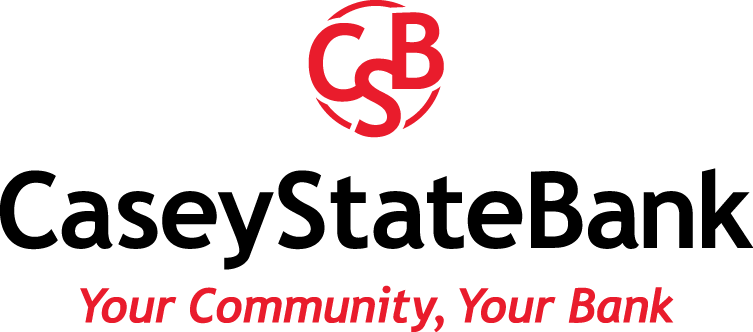Lady at a desk with a laptop
Casey State Bank
Blog
Pay Your Student Loans – Not Scammers
If you have a student loan and do not qualify for a loan forgiveness program, deadlines are approaching! The student loan payment pause is now lifted, interest is accruing, and payments will be due in October 2023. Sadly, scammers are already taking advantage of times like these, where consumers are struggling to pay living expenses plus facing renewed student loan repayment requirements. This blog post highlights some valuable tips for avoiding scams and finding legitimate help when paying off student loans.
Common Student Loan Payment Scams
The first step to avoiding student loan scams is understanding the common scams circulating the web and preying on borrowers.
Some common scams include:
- Loan Forgiveness Scams: Loan forgiveness fraudsters promise to eliminate debt in exchange for a fee.
- Advance Fee Scams: Advance fee scams trick borrowers into paying an upfront “payment” with an empty promise of lower interest rates or monthly payments.
- Loan Consolidation Scams: Loan consolidation fraud occurs when a borrower is tricked into paying for something that does not require a fee. Remember: the consolidation of federal student loans is free
Tips for Identifying Scams
Imposter scams are one of the most commonly reported scams. An imposter scam is one where someone poses as a representative of a trusted agency or institution to steal money or information. Student loan repayment scams may appear as a trusted agency or organization like a financial institution.
Here are some tips for identifying scams to help you avoid them before you share any information.
- Upfront Fees: Legitimate organizations working with student loans do not charge upfront fees.
- Over-promising language: Using language like “guaranteeing” loan forgiveness or promising special connections with federal agencies.
- Promises of immediate loan forgiveness.
- Asking for Username and Password.
- Pushing for fast action due to “limited time offers” or other time-sensitive reasons.
- Asking you to sign a power of attorney or other third-party authorization.
- Spelling and grammatical errors in communications.
How to Avoid Scams
It takes knowledge and vigilance to avoid student loan repayment scams. It’s critical to verify any person or organization asking you to share sensitive personal information like your social security number or FSA ID. Researching financial institutions to ensure they are reputable or that who you are communicating with is from an official government channel is crucial before sharing information.
To help you avoid scams, keep these tips in mind:
- Never pay upfront fees.
- Do not sign up for fast loan forgiveness programs.
- Official-looking names and seals are not always legitimate.
- Do not allow anyone to rush you into making decisions.
- Never give away your FSA ID.
Finding Legitimate Help
Although student loans can feel overwhelming, finding legitimate help is possible! Your student loan provider typically assigns a student loan servicer to each borrower. A student loan servicer is the best first point of contact for help with your student loan obligations. You can explore lowering your payment amount and various other options to help you repay your student debt.
Another legitimate option is seeking help from traditional financial planning and loan options like those offered by Casey State Bank. Other sources for student loan help and advice include The Institute of Student Loan Advisors, the National Consumer Law Center, and the Student Borrowers Protection Center.
Casey State Bank
Do you need help with your student loans? We understand loan repayment strategies and how to make them work for you. Our staff is ready to help you create a tailored solution for your student loan repayment needs. Take control of your student debt — contact Casey State Bank today!


